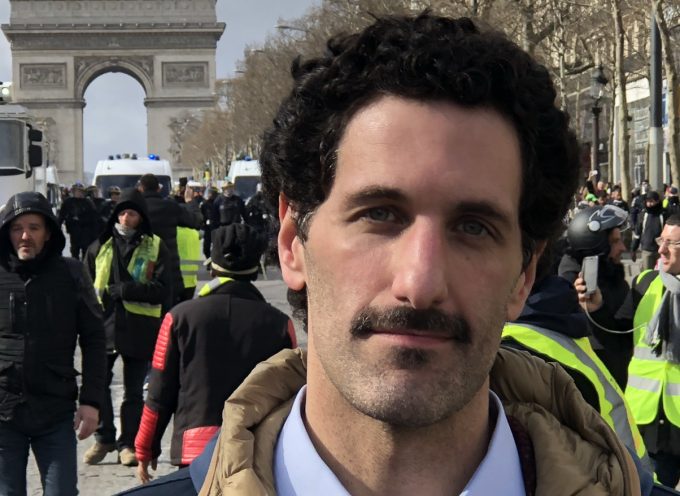The Eurozone and the European Union desperately need a Cultural Revolution to democratically grapple with the structures they set in place decades ago which have created such rising economic inequality. That appears unlikely these nations are not socialist-inspired.
This is why phrases like "social equality" contain no economic component in the West; use that phrase in the West and people will assume you are talking about racism or homophobia they will never think you are referring to Marxist economic ideas or the idea of class.
A pity for them".
The Cultural Revolution empowered China's poorest (rural peasants) and that created economic growth: a correlation for the West would be for those in the US to give vast sums of money and power to their Black underclass such an idea seems impossible; the same goes for the Muslim underclass in France. Critically, both of these neo-imperialists view the exclusion of the poor from the hallways of power as absolutely fundamental to the success of their respective nations: "Blacks/Musulmans in power? Never/Jamais! They don't have the right values/ Ils ne partagent pas les mà �mes valeurs." You hear this openly in these societies all the time these underclasses are just "free-riders" on the genius of the dominant racial/ethnic capitalist class and cannot (should not!) contribute significantly to society.
Such prejudice is no different than a Chinese person in 1965 who thought China could become a safe, thriving superpower by ignoring their rural underclass. Such prejudice is no different from those who are against the Yellow Vests in France.
Han's study proves such ideas are false: Chinese empowerment of the poor generated human capital, which generated economic capital, which generated national success.
Perhaps the best Blacks and Muslims in the West can do is to wait for the Chinese to take over one day? Or, just maybe, the White rural underclass of the West will wise up and learn from socialist-inspired nations like China, Iran, Cuba and others? I'd start with re-examining China's Cultural Revolution.
We don't need to demonise Deng: He may have been on the right of the spectrum of socialist ideology, but he was still also a revolutionary socialist. On the global political spectrum, Deng was still far, far to the left of any supporter of antiquated liberal democracy.
What is a political revolution, after all? It is a cultural revolution
Political revolution is a cultural movement which becomes rooted over generations; it is not just a changing of the leaders it goes even deeper than just changing the laws.
What needs to be understood about countries with socialist revolutions is their humanity: Revolutionary fervor waxes and wanes. During the CR the "left-socialist" line was predominant, whereas afterwards it was the "bourgeois-socialist" or "right-socialist" line.
Mao repeatedly pushed the "left socialist" line, which stressed loyalty to the collectives, local empowerment and reducing urban dominance to spread equality among the mass of the country (the rural areas). After Mao the so-called "bourgeois right socialist" line of Deng Xiaoping (which is still Maoism!) came to prominence, and my main point here is this: Deng had been around forever he was in the Long March so it's not as if he was some newcomer who brought in brand new ideas in 1976.
"Every farmer and every politician in China knew where Deng Xiaoping stood regarding agricultural policies in late 1970s," reminds Han.
Right-wing socialism was not something new it had always been around, it simply had lost popularity" just as any political party (left or right) does in a Western society. Just as people do not wage endless war (except the US war on terror), people do not wage endless revolution people tire, and that allows less-revolutionary elements to come to the fore.
Han clarifies this exactly: "Deng had the power to do whatever he wanted. But more important, he was supported by the persistence of traditional philosophies and the practices that had been challenged during the Cultural Revolution, and by people who stood to benefit by the restoration of the old ways, or thought they would."
Show me the country or society where radical changes continued without end? There are none. Even the Revolution of Islam splintered into status quo and revolutionary sects: Sunni and Shia. It's not as if all Shia have been unceasing revolutionaries since the assassination of Imam Ali in 661 AD, either. Revolutionary spirit waxes and wanes, and maybe this is even a necessary thing? I don't know".
(Note: You can view every article as one long page if you sign up as an Advocate Member, or higher).





